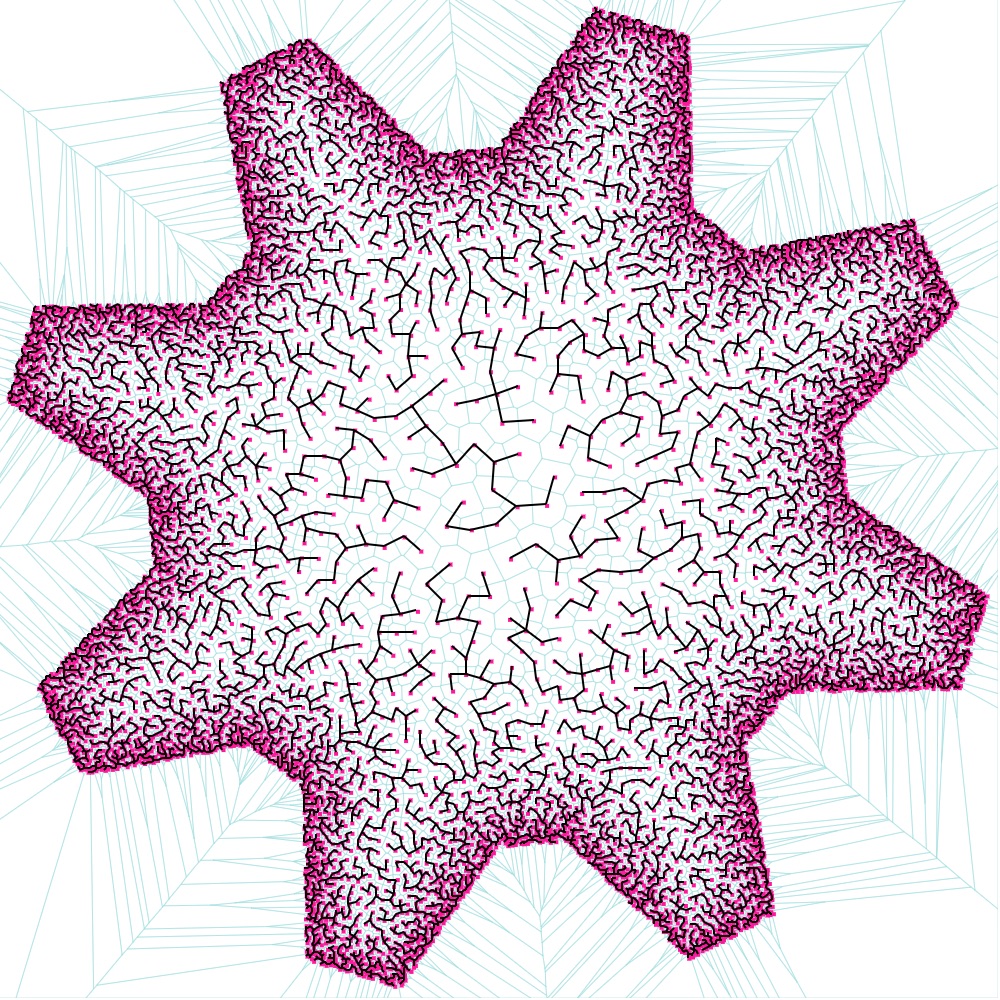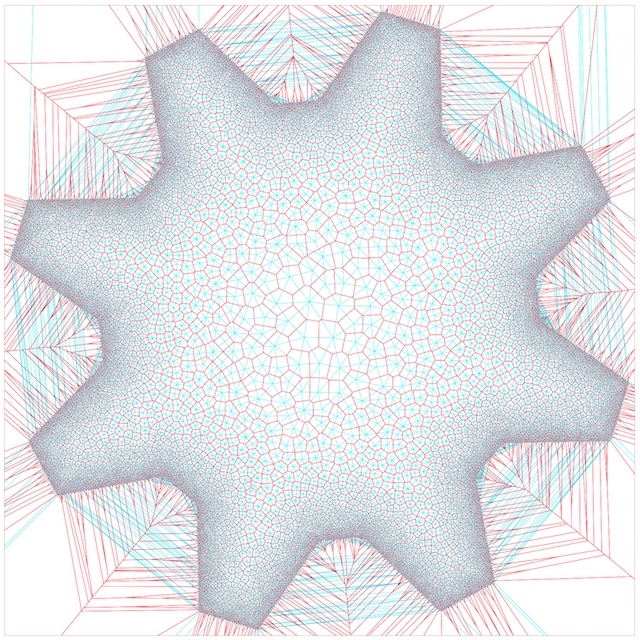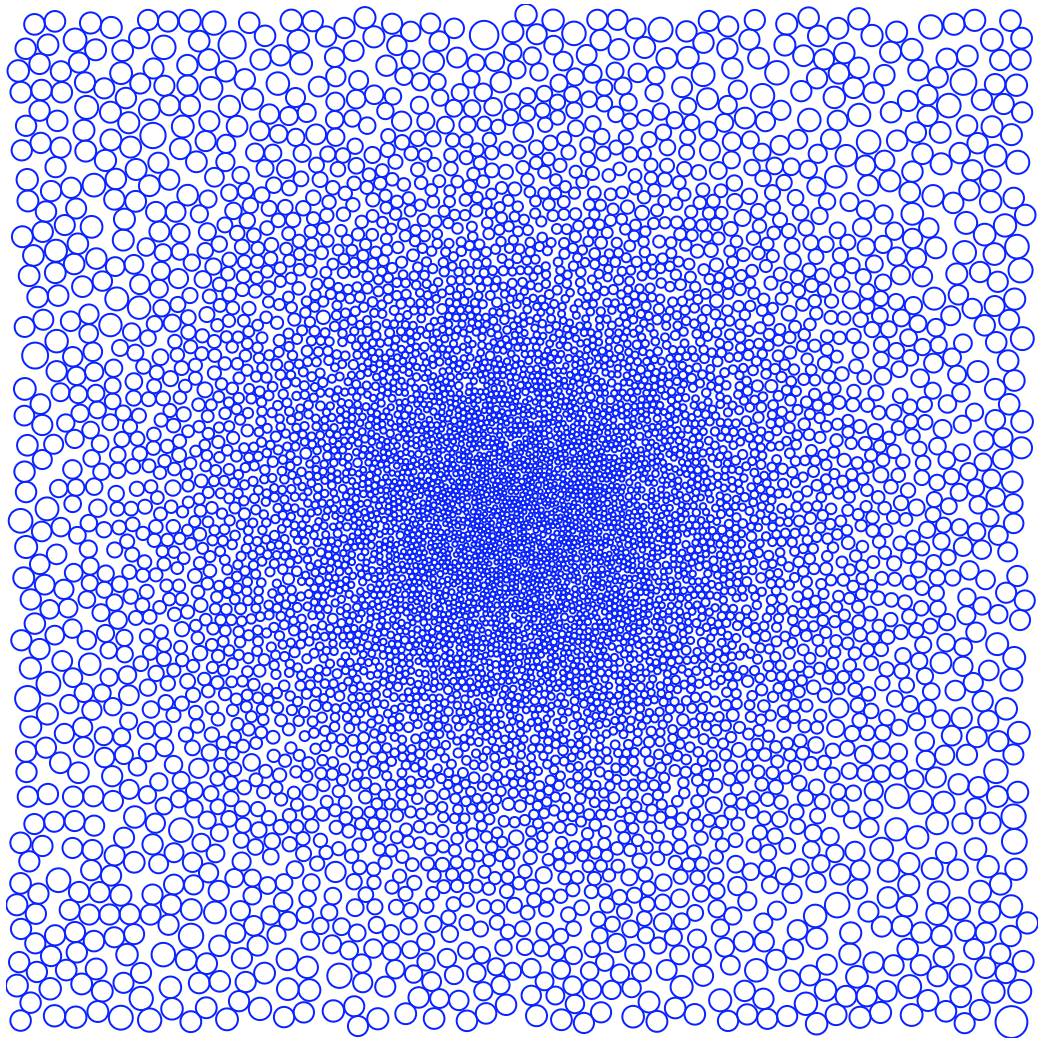This project is part of the @thi.ng/umbrella monorepo.
nD Poisson disk
sampling with
support for variable spatial density, custom PRNGs (via
@thi.ng/random's
IRandom interface & implementations) and customizable quality
settings.
Currently uses a k-D tree implementation to speed up the sampling process, but will be refactored to support other, alternative spatial indexing mechanisms...
STABLE - used in production
- @thi.ng/geom-voronoi - Fast, incremental 2D Delaunay & Voronoi mesh implementation
- @thi.ng/random - Pseudo-random number generators w/ unified API
yarn add @thi.ng/poissonPackage sizes (gzipped, pre-treeshake): ESM: 337 bytes / CJS: 391 bytes / UMD: 501 bytes
Several demos in this repo's /examples directory are using this package.
A selection:
| Screenshot | Description | Live demo | Source |
|---|---|---|---|
 |
Poisson-disk shape-aware sampling, Voronoi & Minimum Spanning Tree visualization | Demo | Source |
The package provides a single function samplePoisson() and the
following options to customize the sampling process:
interface PoissonOpts {
/**
* Point generator function. Responsible for producing a new
* candidate point within user defined bounds using provided RNG.
*/
points: PointGenerator;
/**
* Density field function. Called for each new sample point created
* by point generator and should return the exclusion radius for
* given point location. If this option is given as number, uses
* this value to create a uniform distance field.
*/
density: DensityFunction | number;
/**
* Spatial indexing implementation. Currently only KdTree from
* thi.ng/geom-accel package is supported and must be
* pre-initialized to given dimensions. Furthermore, pre-seeding the
* tree allows already indexed points to participate in the sampling
* process and act as exclusion zones.
*/
accel: KdTree<ReadonlyVec, any>;
/**
* Max number of samples to produce.
*/
max: number;
/**
* Step distance for the random walk each failed candidate point is
* undergoing. This distance should be adjusted depending on overall
* sampling area/bounds. Default: 1
*/
jitter?: number;
/**
* Number of random walk steps performed before giving up on a
* candidate point. Default: 5
*/
iter?: number;
/**
* Number of allowed failed continuous candidate points before
* stopping entire sampling process. Increasing this value improves
* overall quality, especially in dense regions with small radii.
* Default: 500
*/
quality?: number;
/**
* Random number generator instance. Default thi.ng/random/SYSTEM
* (aka Math.random)
*/
rnd?: IRandom;
}import { samplePoisson } from "@thi.ng/poisson";
import { asSvg, svgDoc, circle } from "@thi.ng/geom";
import { KdTree } from "@thi.ng/geom-accel";
import { fit01 } from "@thi.ng/math";
import { dist2, randMinMax2 } from "@thi.ng/vectors";
accel = new KdTree(2);
pts = samplePoisson({
accel,
points: () => randMinMax2(null, [0, 0], [500, 500]),
density: (p) => fit01(Math.pow(Math.max(dist2(p, [250, 250]) / 250, 0), 2), 2, 10),
iter: 5,
max: 8000,
quality: 500
});
// use thi.ng/geom to visualize results
// each circle's radius is set to distance to its nearest neighbor
circles = pts.map((p) => circle(p, dist2(p, accel.selectKeys(p, 2, 40)[1]) / 2));
document.body.innerHTML = asSvg(svgDoc({ fill: "none", stroke: "red" }, ...circles));Karsten Schmidt
© 2016 - 2020 Karsten Schmidt // Apache Software License 2.0

